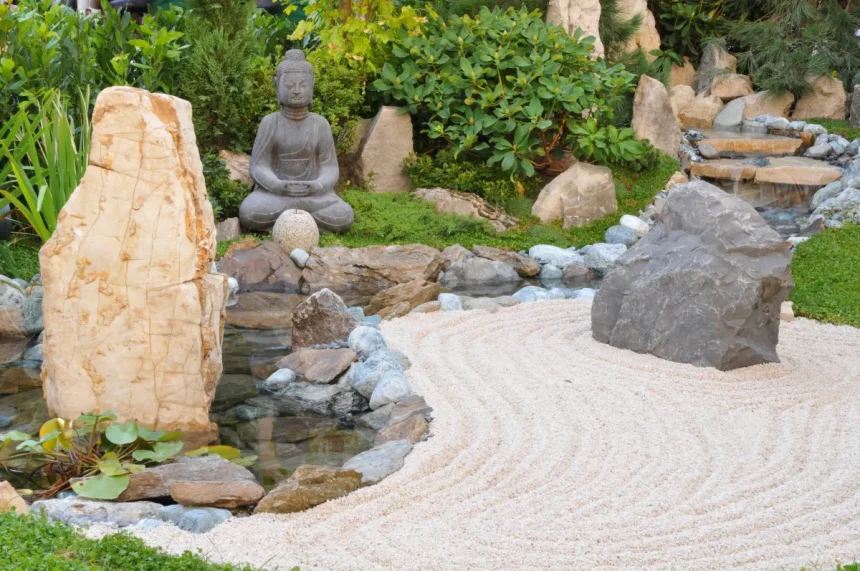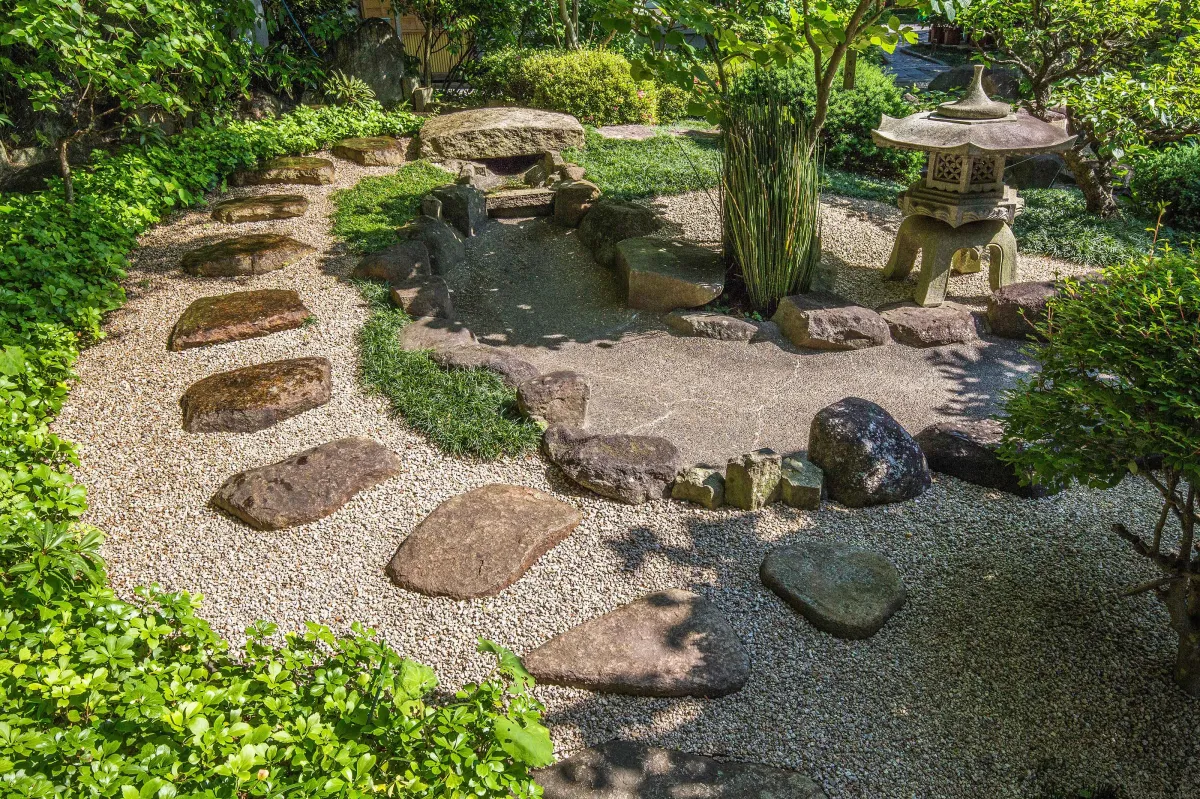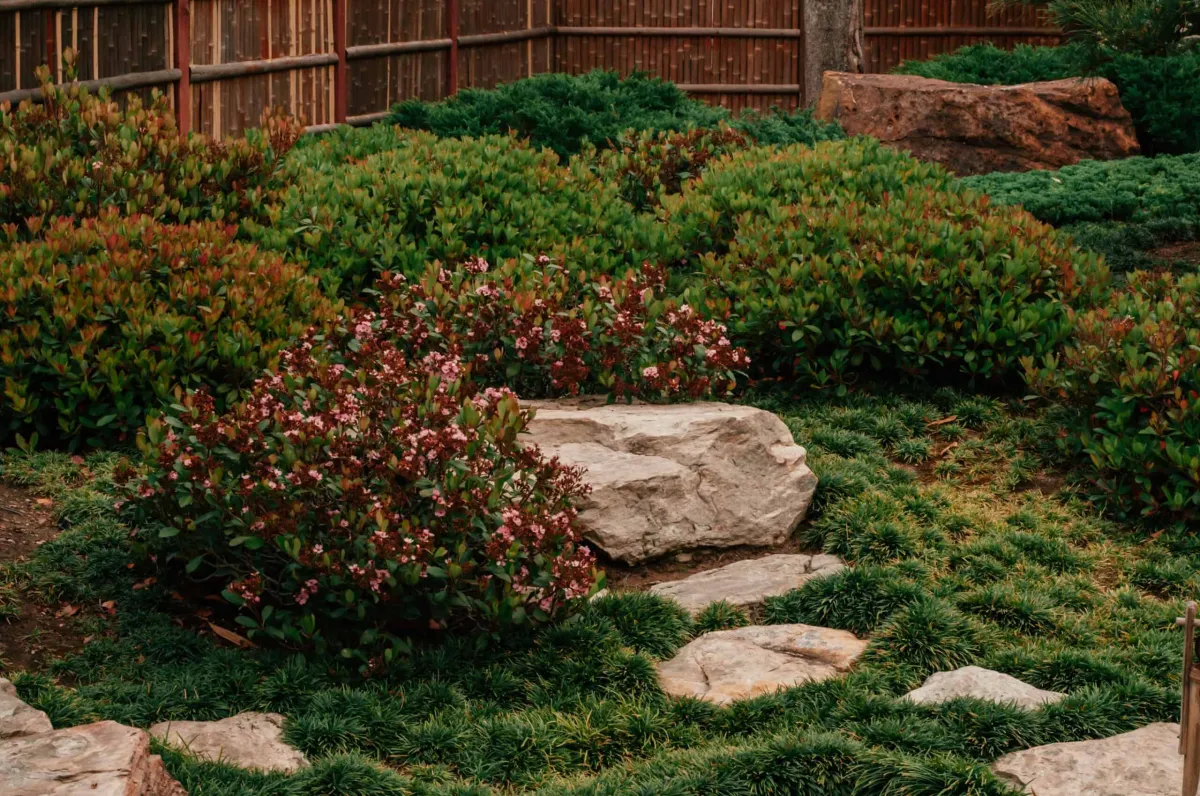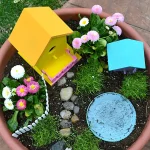What Is a Zen Garden Understanding the Basics
A Zen garden, also known as a Japanese rock garden or meditation garden, is a simple, peaceful outdoor space designed to promote calm and mindfulness. At its core, a Zen garden uses rocks, gravel, sand, and minimal plants to create a natural landscape that encourages reflection and relaxation. The principles behind it focus on simplicity, balance, and harmony with nature — all essential aspects of minimalist garden design.
Historically, Zen gardens originated in Japan during the Muromachi period (14th-16th centuries). They were created by Buddhist monks as places for meditation and spiritual practice. This tradition lives on today, inspiring gardeners everywhere to craft tranquil outdoor spaces that aid in stress relief.
The benefits of a Zen garden extend beyond its beauty. It helps improve concentration, reduces anxiety, and creates a quiet retreat right at home. Whether you want a small-space garden or a larger outdoor setup, the basics of a Zen garden offer a natural way to bring peace and mindfulness into daily life.
Planning Your Zen Garden
Choosing the Right Location
Pick a spot that feels peaceful and gets the right balance of sunlight and shade. If you want an outdoor Japanese rock garden or a minimalist garden design, consider a quiet corner of your yard away from busy areas. For small-space gardening or indoor Zen garden setups, look for a place with enough light and space to add your elements comfortably.
Setting a Budget
Zen gardens can be simple or elaborate, so figure out how much you want to spend. You can create a serene outdoor space on a tight budget by using natural rocks, gravel, and a few plants. If you want water features or special Zen garden accessories, plan for those costs too. Keeping a realistic budget helps you avoid overspending while still building a garden you love.
Sketching Your Design
Before buying anything, sketch your Zen garden layout. Drawing a rough plan helps you visualize where to place rocks, plants, gravel, and any water features. Think about the flow and balance — Japanese garden principles focus on harmony and simplicity. This step makes building your garden smoother and ensures everything fits well in your chosen space.
15 Creative Zen Garden Ideas for Every Space
Creating a Zen garden doesn’t mean you need a huge backyard. Whether you have an outdoor space or just a small area inside your home, there are plenty of ways to bring tranquility with minimalist garden design and Japanese rock garden elements.
Outdoor Zen Garden Ideas
- Traditional Rock and Gravel Garden: Use gravel raked into flowing, calming patterns paired with smooth rocks for that authentic Japanese garden feel.
- Water Feature Focus: Add a small fountain or pond to bring soothing water sounds to your garden.
- Stepping Stones Pathway: Incorporate stepping stones surrounded by moss or sand for a natural, mindful walking experience.
- Bamboo Accents: Bamboo fencing or small bamboo plants create a peaceful vibe and define your space.
- Zen Garden Seating: Place a simple bench or flat stone for meditation and reflection.
Small-Space and Indoor Zen Garden Ideas
- Miniature Rock Garden: Use a small tray with sand, pebbles, and a few rocks to craft a DIY Zen garden on your desk or shelf.
- Succulent and Zen Plant Arrangement: Use hardy, low-maintenance plants like succulents, bonsai, or bamboo in decorative pots.
- Raked Gravel Tabletop: Keep a small sand tray with a miniature rake for stress relief and meditation breaks.
- Terrariums with Zen Elements: Combine tiny stones, moss, and small plants inside glass containers for a modern take on Zen gardening.
- Wall-Mounted Zen Garden: Create vertical gardens using moss and small stones framed as art for tight spaces.
Creative and Modern Zen Garden Ideas
- Mixed Materials: Blend traditional gravel and rocks with modern elements like metal sculptures or concrete planters.
- Colorful Gravel Layers: Use subtle color differences in gravel layers to add visual interest while keeping the minimal vibe.
- LED Lighting: Soft outdoor lights or solar-powered lamps can highlight key features at night, enhancing tranquility.
- Modern Water Features: Sleek, minimalist fountains or bubbling bowls fit great in contemporary spaces.
- Zen Garden Accessories: Add tasteful, simple decorations like lanterns, wind chimes, or stone pagodas for extra charm.
No matter your space, these ideas help you bring the calming spirit and Japanese garden principles into your home or yard. For more gardening tips, check out this guide on spring gardening tips to prepare your garden all year round.
Choosing Plants for Your Zen Garden
Selecting the right plants is key to creating a peaceful, balanced Zen garden. The goal is to keep things simple and calm, reflecting Japanese garden principles. Here’s what to keep in mind when choosing Zen garden plants:
-
Evergreens: Plants like dwarf pines, junipers, and boxwoods provide year-round structure and a calming green backdrop. They suit minimalist garden design perfectly.
-
Moss: Moss adds a soft, natural carpet that feels peaceful and serene. It thrives in shady, moist areas and is a classic element in Japanese rock gardens.
-
Bamboo: Thin bamboo stalks bring subtle movement and gentle rustling sounds. Just be sure to choose clumping bamboo for small spaces to avoid invasive spreading.
-
Ornamental Grasses: Varieties like fountain grass or blue fescue add texture without overwhelming the space. They work well for raked gravel patterns to contrast with.
-
Flowering Plants: Keep it minimal with seasonal blooms such as azaleas or camellias. These add subtle color without cluttering the tranquil look.
-
Ground Covers: Low-growing plants like creeping thyme or sedum can soften hard edges and fill gaps naturally.
For small-space gardening or indoor Zen gardens, consider compact plants like succulents or air plants, which are easy to maintain and fit any spot.
Remember, the idea is to create a calm, uncluttered feel that encourages meditation and relaxation. Stick to a few carefully chosen plants rather than overloading the garden.
For more tips on making your outdoor space peaceful, you might also find helpful ideas in our gardening tips and tricks.
Essential Elements and Accessories for Your Zen Garden
A Zen garden works best when you focus on a few key elements that bring calm and balance. Here’s a quick guide to the essentials you’ll want to include:
Rocks and Gravel
Rocks represent mountains or islands in a Japanese rock garden. Choose smooth, natural stones of varying sizes to create depth. Gravel or small pebbles form the base, often raked into patterns to symbolize water or waves. This minimalist garden design helps keep things simple and clean.
Sand Patterns
Raked gravel or sand is a classic feature. Use a wooden rake or garden tool to create flowing lines or circular patterns around rocks. These patterns add movement and are part of the meditation garden idea, encouraging mindfulness as you rake.
Water Features
While traditional Zen gardens don’t always include water, a small pond, fountain, or even a trickling water feature can boost tranquility. The gentle sound of water adds to the peaceful vibe, especially in outdoor Zen gardens.
Accessories
Subtle accents like bamboo fences, stone lanterns, or wooden benches enhance the space without cluttering it. Choose natural materials that blend in, keeping the focus on simplicity and relaxation.
Where to Buy
You can find rocks, gravel, sand, and water features at local garden centers or home improvement stores like Home Depot or Lowe’s. For more specialized Zen garden accessories, check online retailers or stores focusing on Japanese garden principles. Buying local can help you pick materials suited for your outdoor climate.
Including these core elements ensures your Zen garden feels authentic and peaceful, making it a perfect spot to unwind.
Step-by-Step Guide to Building Your Zen Garden
Creating a Zen garden doesn’t have to be complicated. Here’s a simple, clear guide to help you build your own tranquil outdoor space, whether you have a large yard or a small balcony.
1. Prepare Your Space
- Clear the area of weeds, grass, and debris.
- Level the ground to create a smooth base for your garden.
2. Define the Border
- Use wood, stone, or metal edging to frame your garden.
- This keeps gravel and sand contained and adds structure.
3. Lay the Base
- Spread landscape fabric to prevent weeds from growing through.
- Add a layer of sand or fine gravel as your base, smoothing it out.
4. Arrange Rocks and Plants
- Place larger rocks first; they act as focal points in your Japanese rock garden.
- Add selected plants like moss, bamboo, or small shrubs following minimalist garden design principles.
5. Add Gravel or Sand
- Spread a layer of gravel or sand over the base.
- Keep the layer even and thick enough to rake patterns.
6. Create Sand Patterns
- Use a rake to make smooth, flowing lines or waves in the sand or gravel.
- These raked gravel patterns mimic water and enhance the meditation garden vibe.
7. Add Water Features and Accessories
- If space allows, consider a small fountain or a simple water basin.
- Accessories like lanterns or statues can bring character but keep it minimal to preserve tranquility.
8. Final Touches
- Step back and adjust the design for balance and harmony.
- Make sure pathways or spaces for meditation are clear and accessible.
This process helps keep your Zen garden simple and authentic. Want more tips on small-space gardening or plant care? Check out our gardening tips and tricks for advice that complements your new garden.
Maintenance Tips for a Serene Zen Garden
Keeping your Zen garden peaceful and inviting means regular care, but it doesn’t have to be complicated. Here are simple maintenance tips to keep your Japanese rock garden looking great and feeling tranquil:
-
Rake Gravel and Sand Patterns Often
Raking is key to maintaining those smooth, flowing patterns that reflect calm and mindfulness. Do this every few days or after strong winds disturb the surface. -
Keep Rocks and Accessories Clean
Remove leaves, dirt, or debris from stones and Zen garden accessories. A quick wipe or gentle brush keeps everything looking fresh. -
Trim Plants Regularly
If you have Zen garden plants like small shrubs or moss, prune them to maintain their shape and prevent overgrowth. This supports the minimalist garden design. -
Water Carefully
Avoid overwatering, especially with indoor or small-space gardening setups. Check soil moisture regularly and water only when needed to avoid mold or root rot. -
Manage Weeds Quickly
Pull out weeds as soon as you spot them. This keeps your garden neat and prevents them from taking over the tranquil outdoor space. -
Refresh Gravel or Sand As Needed
Over time, gravel and sand might get compacted or faded. Adding a thin new layer every season helps maintain the garden’s clean look. -
Protect Water Features
If you have a water feature, clean filters and change water regularly to prevent algae build-up and keep the feature soothing.
By sticking to these easy steps, your Zen garden stays a calm spot for meditation and relaxation all year round.
Why Choose a Zen Garden for Your Home
A Zen garden brings calm and balance right to your doorstep. It’s more than just a pretty outdoor space—it’s a place designed to help you relax, focus, and clear your mind. Whether you’re dealing with a busy schedule or just want a peaceful spot to unwind, a Zen garden offers a natural retreat.
Here’s why a Zen garden works well for U.S. homes:
- Stress relief and mindfulness: The simple design and natural elements help reduce stress and promote meditation.
- Fits any space: From large backyards to small balconies or even indoor setups, Zen garden ideas adapt easily to your space.
- Low maintenance: Using rocks, gravel, and minimal plants means less watering and upkeep while keeping a tidy look.
- Enhances outdoor living: Creates a tranquil outdoor space perfect for reading, yoga, or just enjoying fresh air.
- Minimalist garden design: Keeps your lawn simple and elegant, saving time and effort on traditional gardening.
- Adds value and style: A thoughtfully designed Japanese rock garden can boost curb appeal and create a unique look for your home.
If you want a peaceful spot to recharge, a Zen garden is a smart choice that blends beauty with function, fitting perfectly into modern American homes.











